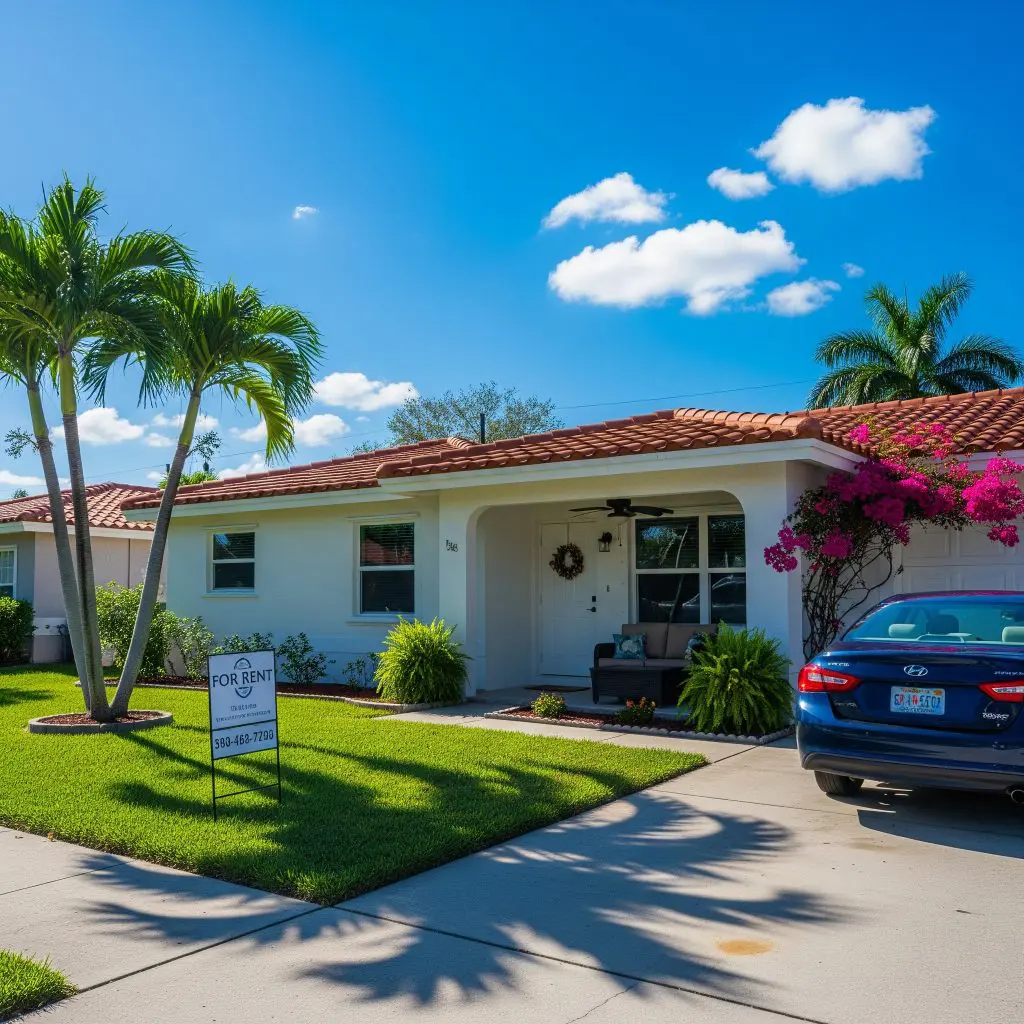Should I Put My Rental Property in an LLC for Asset Protection?
Miami – October 2, 2025: For many real estate investors in Florida, a critical question arises after acquiring rental properties: Should I put my rental property in an LLC for asset protection?
- Should I Put My Rental Property in an LLC for Asset Protection?
- Why Investors Consider LLCs for Rental Properties
- Potential Drawbacks of Putting a Rental Property in an LLC
- Current Market Insights for Florida Investors
- Florida Geo-Targeting: Where LLCs Make the Most Sense
- External Resources for Florida Investors
- Q&A: Should I Put My Rental Property in an LLC?
- Why GHC Funding is the Go-To Lender for Florida Investors
- Final Thoughts
- Call to Action
- Download LLC Setup & Financing Checklist for Florida Investors” (PDF)
Whether you own a single-family rental in Miami (33130), a duplex in Tampa (33602), or a multifamily property in Orlando (32801), structuring ownership the right way can protect your personal assets and provide tax benefits. This guide will help you evaluate whether forming an LLC (Limited Liability Company) is right for your investment strategy.
Rental Property in an LLC for Asset Protection:
- Why Investors Consider LLCs for Rental Properties
- Potential Drawbacks of Putting a Rental Property in an LLC
- Current Market Insights for Florida Investors
- Florida Geo-Targeting: Where LLCs Make the Most Sense
- External Resources for Florida Investors
- Q&A: Should I Put My Rental Property in an LLC?
- Why GHC Funding is the Go-To Lender for Florida Investors
- Final Thoughts
- Call to Action
- Download LLC Setup & Financing Checklist for Florida Investors” (PDF)
Why Investors Consider LLCs for Rental Properties
1. Asset Protection
The main advantage of an LLC is separating your personal finances from business liabilities. If a tenant sues, they can only pursue the assets within the LLC—not your personal bank accounts, car, or primary residence.
Need capital? GHC Funding offers flexible funding solutions to support your business growth or real estate projects. Discover fast, reliable financing options today!
⚡ Key Flexible Funding Options:
GHC Funding everages financing types that prioritize asset value and cash flow over lengthy financial history checks:
-
Bridge Loans: These are short-term loans used to "bridge the gap" between an immediate need for capital and securing permanent financing (like a traditional loan or sale). They are known for fast closing and are often asset-collateralized, making them ideal for time-sensitive real estate acquisitions or value-add projects.
-
DSCR Loans (Debt Service Coverage Ratio): Primarily for real estate investors, these loans are underwritten based on the property's rental income vs. debt obligation ($\text{DSCR} = \text{Net Operating Income} / \text{Total Debt Service}$), not the borrower's personal income or tax returns. This offers flexibility for those with complex finances.
-
SBA Loans: The Small Business Administration (SBA) guarantees loans offered by partner lenders. While providing excellent terms (long repayment, lower rates), the application process is typically slower than private/bridge funding, often making them less suitable for immediate needs. SBA eligibility heavily relies on the DSCR metric for repayment assessment.
🌐 Learn More
For details on GHC Funding's specific products and to start an application, please visit their homepage:

2. Professional Image & Scalability
Operating under an LLC enhances professionalism when dealing with tenants, property managers, and contractors. It also allows you to scale, as each new property can be held in a separate LLC or series LLC.
3. Pass-Through Tax Benefits
In Florida, LLCs are considered pass-through entities, meaning rental income passes directly to your personal tax return, avoiding double taxation. Investors may also benefit from the Qualified Business Income (QBI) deduction of up to 20%.

Potential Drawbacks of Putting a Rental Property in an LLC
- Financing Limitations: Many conventional lenders prefer lending to individuals, not LLCs. However, GHC Funding specializes in DSCR loans and SBA programs that allow entities to hold properties.
- Transfer Taxes: Moving an existing property into an LLC may trigger transfer taxes in certain counties.
- Administrative Costs: Annual filing fees, registered agent costs, and bookkeeping responsibilities add to your overhead.
The Ultimate DSCR Loan for Rental Property Quiz

Are you looking to expand your real estate investment portfolio? A DSCR loan might be the perfect tool to help you achieve your goals without relying on traditional income documentation. Test your knowledge with this quiz to see if you're ready to master the intricacies of a DSCR loan for rental property.
Current Market Insights for Florida Investors
Interest Rates (as of October 2025):
- DSCR Loans: 6.25% – 8.75% (no personal income verification, based on rental income)
- SBA 7a Loans: Prime + 2.75% (~11.25%)
- SBA 504 Loans: 6.75% – 7.5% long-term fixed rates
- Bridge Loans: 9% – 11.5% for short-term repositioning
Loan Requirements for LLC Investors:
- Entity Ownership: LLCs are fully eligible for DSCR loans, SBA 7a/504, and bridge loans through GHC Funding.
- DSCR Ratios: 1.0 – 1.25 minimum required.
- LTVs: Up to 80% financing.
- Accepted Property Types: SFRs, duplexes, triplexes, fourplexes, small multifamily, and mixed-use.
Test Your Expertise: The Complexities of the 1031 Exchange

As a sophisticated real estate investor, you understand that the 1031 Exchange is a cornerstone strategy for tax deferral and wealth accumulation. But beyond the basics, the intricacies of the 1031 Exchange rules can pose significant challenges. This quiz is designed to test your in-depth knowledge and highlight critical nuances that separate casual investors from true experts in 1031 Exchange transactions.
Instructions: Choose the best answer for each question.
Florida Geo-Targeting: Where LLCs Make the Most Sense
- Miami (33130, 33132): High appreciation and strong rental demand; LLCs protect assets in litigious markets.
- Orlando (32801, 32819): Heavy short-term rental activity makes liability protection essential.
- Tampa (33602, 33605): Strong multifamily market and growing investor presence.
- Jacksonville (32202, 32207): Affordable entry points for small investors scaling portfolios.
- Fort Lauderdale (33301, 33316): Popular with vacation rentals—added liability protection is key.
Quiz on Florida Rental Property Laws and Regulations

Test your understanding of the essential laws and regulations for owning and managing a Florida rental property. This quiz will cover key topics every landlord should know to ensure legal compliance and a smooth operation.
External Resources for Florida Investors
- Florida Division of Corporations – Official LLC registration
- Florida Real Estate Commission – Licensing and compliance
- Florida Department of Revenue – State tax guidance for landlords
- Central Florida Realty Investors Association – Investor networking
- Miami Association of Realtors – Market insights and research
Test Your Florida Investment Prowess!

Florida, the Sunshine State, is a magnet for residents, tourists, and, increasingly, real estate investors. With its diverse markets, from bustling metropolises to serene coastal towns, understanding Florida's unique landscape is crucial for anyone looking to enter the investment property game, especially when exploring options like no income verification rental property loans for new investors.
How well do you know the state that offers unparalleled investment opportunities? Take our quiz and find out!
Q&A: Should I Put My Rental Property in an LLC?
Q1: Does an LLC guarantee full protection from lawsuits?
A: While LLCs limit liability, they don’t protect against personal negligence. Insurance is still necessary.
Q2: Can I get a mortgage in an LLC’s name?
A: Yes, with lenders like GHC Funding that offer DSCR and SBA financing designed for entity borrowers.
Q3: What if I already own the property in my name?
A: You can transfer it to an LLC, but check local tax implications first.
Q4: Is it expensive to set up an LLC in Florida?
A: Annual filing fees are relatively low (~$138.75), but you’ll also need a registered agent.
Q5: Should I use one LLC per property or a series LLC?
A: Many investors use one LLC per property for maximum protection. Florida does not currently authorize series LLCs like some states.
Q6: Do I need an LLC for tax benefits?
A: Not always—many deductions apply regardless. But LLCs may unlock QBI and additional planning strategies.
Why GHC Funding is the Go-To Lender for Florida Investors
- LLC-Friendly Financing: DSCR, SBA, and bridge loans structured for entity ownership.
- No Income Docs Required: Loans based on property cash flow, not W-2s.
- Flexible Terms: Options up to 80% LTV with competitive rates.
- Market Expertise: Experience financing rentals across Florida’s diverse markets.
Final Thoughts
So, should you put your rental property in an LLC for asset protection? For most Florida investors, the answer is yes—if done strategically. An LLC provides liability protection, enhances credibility, and aligns well with financing through GHC Funding.
By combining LLC asset protection with the tax benefits of rental ownership, Florida investors can scale portfolios confidently.
Call to Action
👉 Ready to finance your rental property under an LLC in Florida?
Visit GHC Funding or call 833-572-4327 to explore DSCR loans, SBA financing, bridge loans, and alternative real estate funding solutions tailored for LLC investors.
Download LLC Setup & Financing Checklist for Florida Investors” (PDF)
Get a No Obligation Quote Today.
Use these trusted resources to grow and manage your small business—then connect with GHC Funding
to explore financing options tailored to your needs.
GHC Funding helps entrepreneurs secure working capital, equipment financing, real estate loans,
and more—start your funding conversation today.
Helpful Small Business Resources
